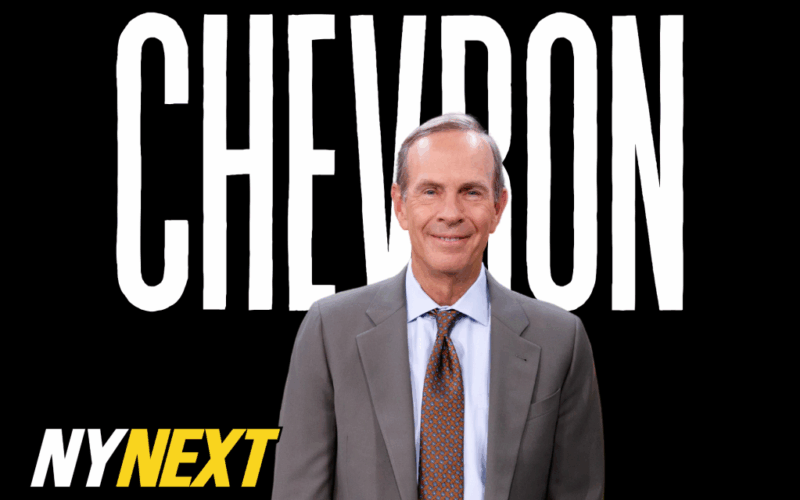As the world races to power AI and meet soaring energy demands, Chevron CEO Mike Wirth is betting big on US resources. The company is investing more than ever in domestic energy sources — both new technology and the fossil fuels that currently power roughly 80% of the economy.
For the first time in decades, and the first time in Wirth’s 43-year tenure at the company, Chevron is spending nearly twice as much in the US — approximately $10 billion — as they are abroad.
“We’ve got a country here that is blessed with a tremendous endowment of natural resources,” he told me.
And, after closing a $53 billion acquisition of the New York-based oil giant Hess Corporation earlier this summer, expansion and investment will only increase. (He assures me the Hess toy trucks will remain.)
In the past year, Chevron expanded it’s operations in Gulf of America and the Permian Basin and its renewable diesel facilities. Later this year, it will open one of the largest green hydrogen storage facilities on the planet in Utah.
But tapping the country’s abundant resources in the US is challenging.
“It’s a lot easier to build things in China than it is in the United States,” he said.
An ever-changing US regulatory regime makes long-term investment difficult.
“The review processes are so cumbersome … held up through judicial review for years and years and years on end,” he explained. “In a country whose economic strength lies in building things, it has suddenly become a place that doesn’t build.”
The 64-year-old Wirth is not what I imagined the CEO of a $320 billion global company to be. He’s got Tanya’s key lines from “The White Lotus” memorized and is conversant on the delightfully trashy Netflix hit “The Hunting Wives.” (He recently moved to Houston from California and swears it’s nothing like the show).
He’s also incredibly passionate about what he sees as the true mission for Chevron: “Eradicating energy poverty” while investing in new technology.
A self-proclaimed former hippie who grew up in Colorado, he understands the criticisms of fossil fuels but has reached different conclusions — in part because he’s seen the consequences of energy scarcity firsthand.
“Reliable, affordable energy is fundamental to the quality of life on the planet,” he told me.
While he said he’s never been more optimistic about how cleaner energy sources can transform the industry, he’s also learned to be brutally pragmatic — especially with population growth and the AI race increasing demand. Despite being vilified, he said fossil fuels are fundamental to prosperity.
This story is part of NYNext, an indispensable insider insight into the innovations, moonshots and political chess moves that matter most to NYC’s power players (and those who aspire to be).
“The reality is 80% of the world’s energy today is fossil fuels. And we need to continue to produce energy that keeps the lights on and the trains running,” he said. “The mix [of renewables to gas and oil] will probably change, but the demand globally will be higher because the population will be higher… If you go back 20 years, the mix was maybe 84% … [if] you roll it forward another ten years. It’s probably still in the high 70s.”
AI energy consumption has been part of the impetus for new Chevron initiatives, like one partnering with GE Vernova and Engine No. 1 to form a joint venture building off-grid natural gas power generators for data centers. The project powers data centers without raising consumer electricity costs, the way many centers have done across the country.
Chevron is also investing in a range of new energy technologies — including carbon capture, clean hydrogen, geothermal and lithium.
Wirth is realistic that even with such varied and extensive investments, many of these initiatives are still more than a decade from being commercially viable. Even then, they won’t represent a significant portion of the energy supply.
“We’ve never seen a reduction in the demand for any energy source,” he said. “We’ve just added coal, oil, gas, hydropower, nuclear, wind, solar… we’ve added new technologies to help meet that growing demand.”
Of course, oil and gas have been destructive to the environment, but energy access is key.
“Economic development and progress enable people to take care of the environment,” he said. “But when people are taking care of their basic needs like food, heat, education, health, they can’t afford to invest in the environment.”
In poverty-stricken countries like India and China, energy is foundational to lifting people out of poverty.
“Energy equality is fundamental to equality,” Wirth told me. “Energy prosperity is fundamental to every other type of prosperity.”








